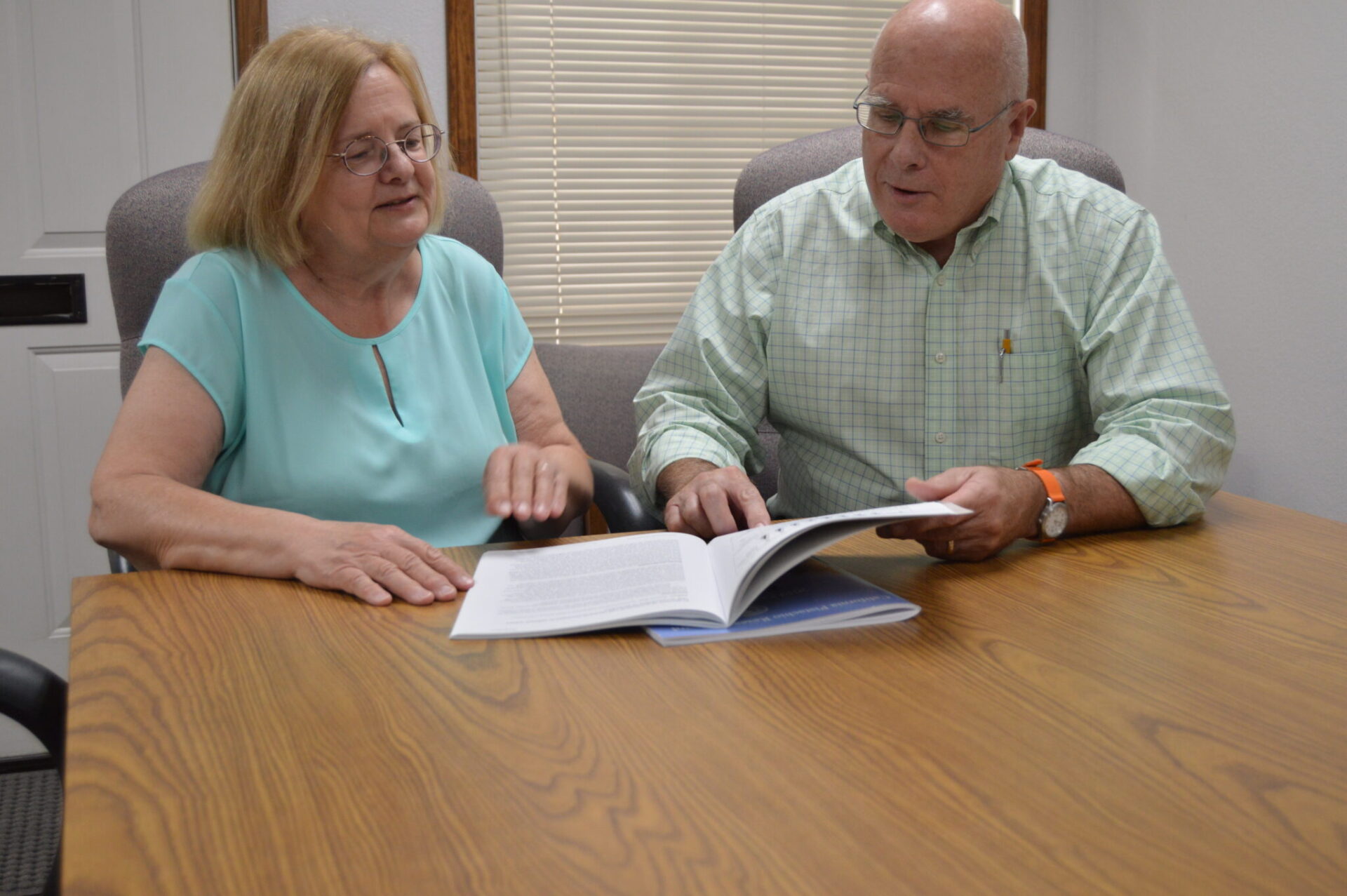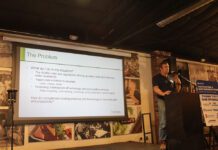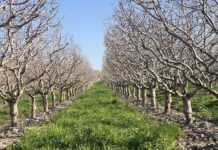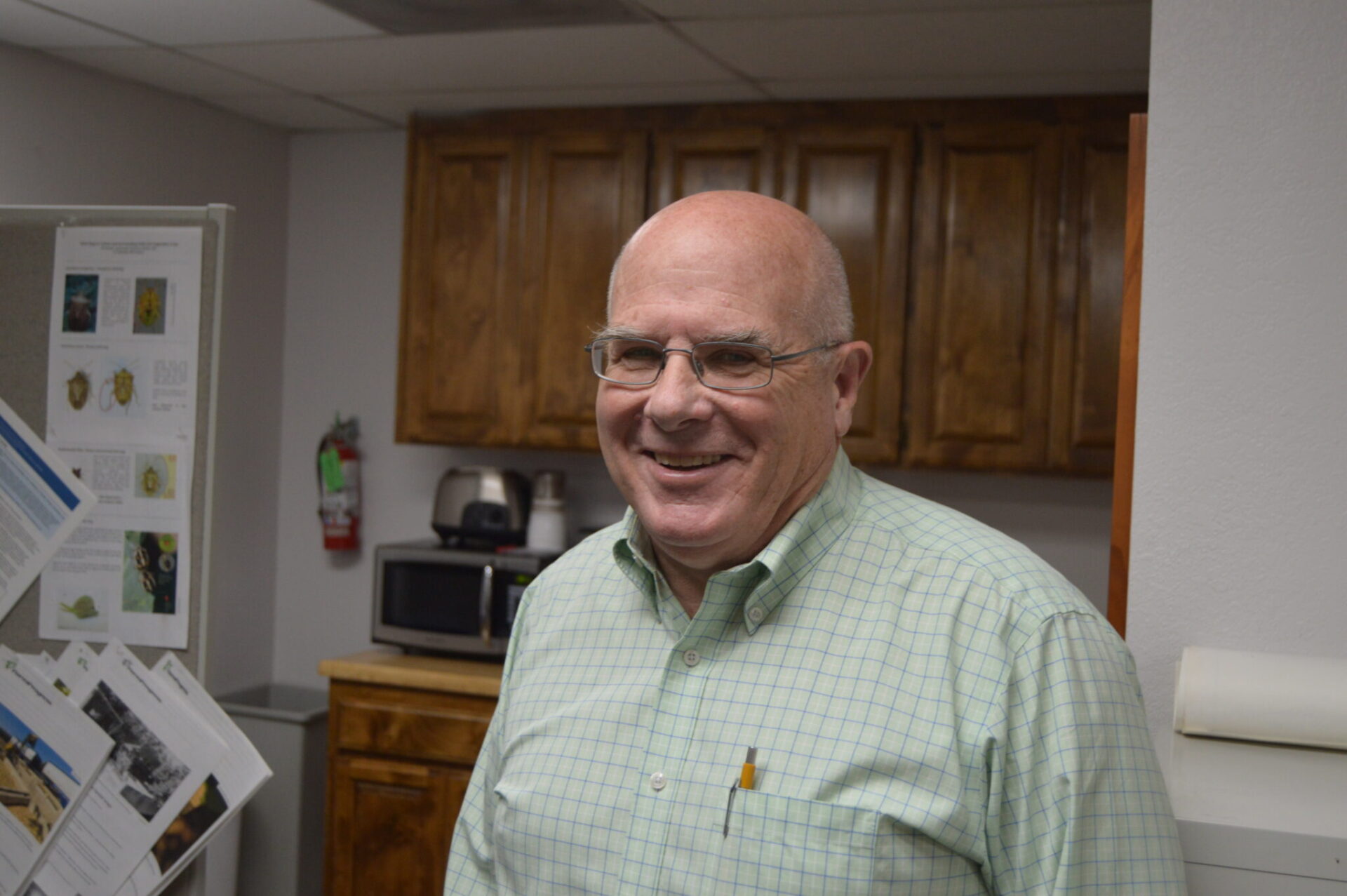
In 1999, while looking at professional opportunities to follow his work as a plant pathologist at Washington State University, Bob Klein was drawn to a job posting for research director of the California Pistachio Commission. Today, after seventeen years as manager of the Administrative Committee for Pistachios (ACP) and 14 as manager of the California Pistachio Research Board, Klein still remembers his thoughts.
“I looked at the job description and I said, ‘Well, I do that, I do that, I do that.’ So, I applied,” Klein said. “For me, it was an excellent career and family move.”
From his work first as research director of the long-dissolved California Pistachio Commission to his many years as an administrator for the industry, Klein has been a vital player in helping the industry overcome production issues, trade issues and regulatory hurdles. And he has seen the industry reshape its administrative organizations.
The reformations started eight years after Klein joined the California Pistachio Commission when growers voted against reauthorizing the commission.
Fortunately for the industry, three years earlier, the industry had formed the Administrative Committee for Pistachios (ACP), so the industry had a group in place during the interim between the dissolution of the commission and the launch of the Pistachio Research Board.
“If we hadn’t had it in place, when the commission failed the reauthorization vote, there wouldn’t have been any group of the industry to work around,” Klein said. “So, it was fortuitous at that point. Even as the commission closed in June of 2007, we were already meeting and putting into place a state marketing order to help fund production research to address many different growing issues.”
Expanded Role
The ACP, originally formed solely for the purpose of testing aflatoxin levels in domestically produced pistachios, eventually taking on additional responsibilities, including providing statistical reporting in the form of monthly inventory and shipping reports and providing acreage reports by county. Through the years, the ACP also has served as a hub where issues with food safety can be addressed on an industry-wide level, which has helped keep pistachios flowing during food-safety scares.
The California Pistachio Research Board, meanwhile, has been integral to helping the industry overcome production issues by funding research into issues with Botryosphaeria blight and navel orangeworm, among others.
“When I came on, the biggest concern was a new fungal disease, Botryosphaeria blight,” Klein said. “The industry got together, raised assessments and put up $1 million dollars to do research on it, looking at both cultural and fungicidal control, and Botryosphaeria tends to be not much of a problem now.
“Right now, the navel orangeworm (NOW) is our principal insect pest,” he said. “It is an ongoing issue involving cultural control, management aspects for harvest, insecticides, and now we have mating disruption and we are looking at sterile insect technology. So, we hope to have a more broad-based control for NOW in the near future.”
Board funding also has helped fine-tune both nitrogen and irrigation needs for pistachio production and has helped inform state regulators when setting regulations. And, he said, the board has and continues to fund research into maintaining salt tolerance among pistachio varieties, ensuring that new varieties are equally or more salt tolerant than current varieties.
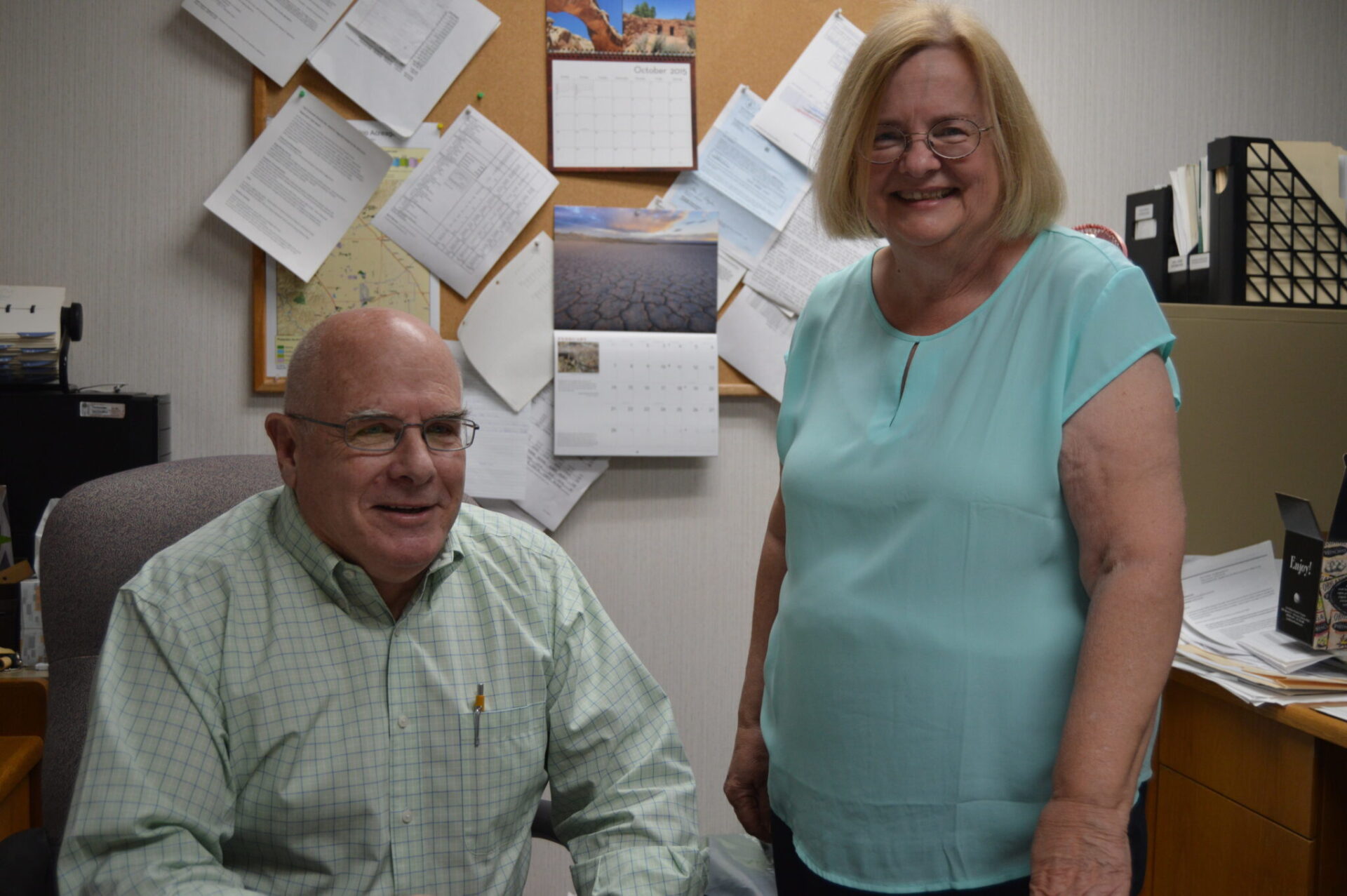
Inform Rather than Lead
Klein said his approach to working with boards was shaped while witnessing different ways commission administrators dealt with their boards during his time as a plant pathologist at Washington State University. The hands-off approach appealed to him and seemed more effective.
“There are certain things where I might say, ‘We need this project because the information we are going to get from this applies to this and this and this,’” he said. “But I more inform than lead.
“The growers may not know, for example, what pressures the EU is putting on us in a regulatory sense, so I try to make sure they understand where things sit in different contexts,” he said.
He added that he views himself as more a facilitator than a leader.
“I think you really have to look at it as it is a service organization that is created by the growers,” he said, “and you really need to serve the growers.
“Nobody is ever going to tell you that I am not an egotistical person,” he added. “We all have healthy egos. But you need to be able to set your ego aside. And there is no question we can reap benefits from that, but you have to make sure that it is not about you.”
Brian Blackwell, who worked with Klein for many years dating back to when Klein was hired as research director for the California Pistachio Commission, said he has always appreciated Klein’s approach. “He had a great leadership style as far as I was concerned,” said Blackwell, a former chair of the ACP. “I was always very happy that he was the manager of any organization I was involved in, and I depended a lot on him and his expertise.
“He is a very thoughtful, very meticulous, very science-based professional,” Blackwell said.
“He seems to know whether the research projects are going in the right direction or not,” said Tom Coleman, chair of the ACP and the Research Board. “And he seems to always be willing to look at new areas, new technology, new possibilities. He is very open minded. And he does a good job of being patient with those of us who are not scientific in our thinking. And he is very competent at steering us in the right direction.
“Maybe there is a research project that he thinks is important, but somebody objects to the cost or the duration. He’ll come up with an idea like, ‘How about if we ask them to just do this and at that point we’ll see if we want to continue?’ There is almost no dissent on the board. Most of our votes are unanimous, and I can’t say that was always true on the [Pistachio] Commission,” Coleman said.
Klein, who grew up in the Los Angeles area, received his undergraduate degree from the University of Colorado and his doctorate from Colorado State University in plant pathology. He believes his education and training have served him well, both with the ACP and the Research Board.
“Plant pathologists tend to have a broad training,” he said. “They tend to know agronomy because many viral diseases end up causing chlorosis of plants, and they learn entomology, because insect damage can cause diseases or transmit viruses. And when I look at the aflatoxin issues we have, I can bring my statistics experience to bear. It is something that doesn’t scare me. And I can go talk to any plant pathologist or entomologist or agronomist and have some sort of understanding of where they are coming from.”
Transition Plan
Klein and the ACP and the California Pistachio Research Board currently are looking at a transition plan for him and his long-time assistant Juanita Owens, both of whom are looking to retire over the next three years.
“It isn’t clear what we are going to do,” he said. “But we know that Juanita is going to retire before me, so we will bring somebody in and have them job shadow her for probably six months.”
Klein said he plans to retire when he turns 70, which will be in April of 2024.
“My transition will probably involve me being available to help when needed,” he said. “For example, if we need to go to the EU, I’ll probably go over with my successor the first time so I can introduce the new person and also make sure the new person knows who they are talking to.”
In the meantime, look for Klein to take a hands-off approach in helping position the industry for success.
“This job is not about me,” he said. “It is about what needs to get done for the growers so they can maintain their operations, their families, their role in the community.”
